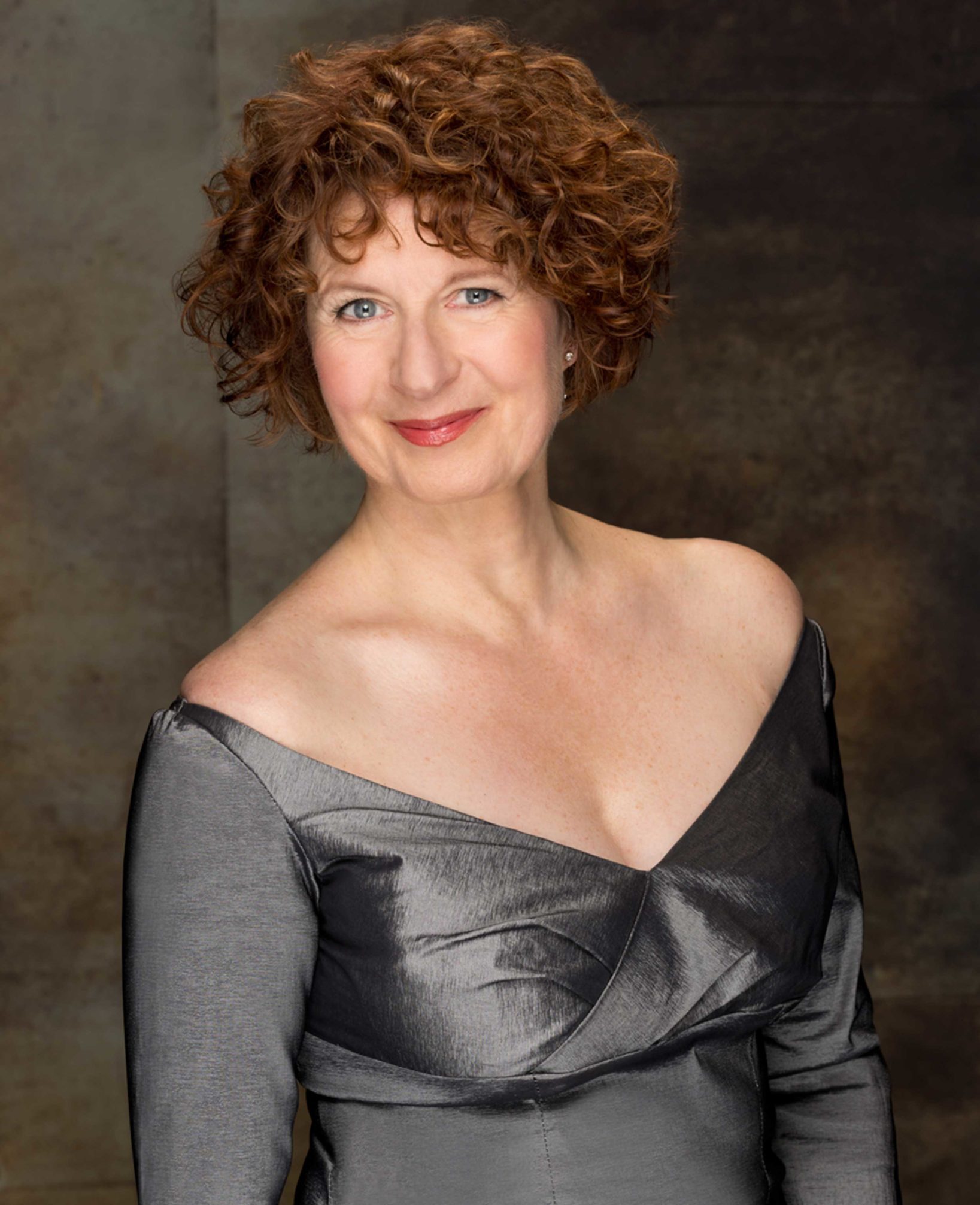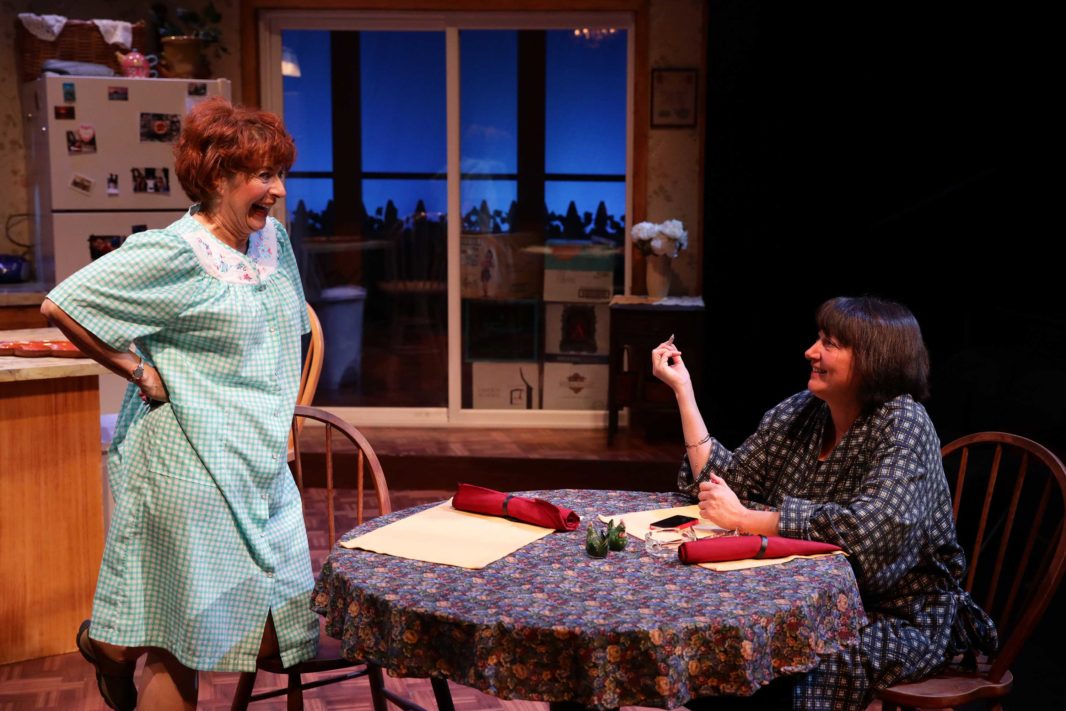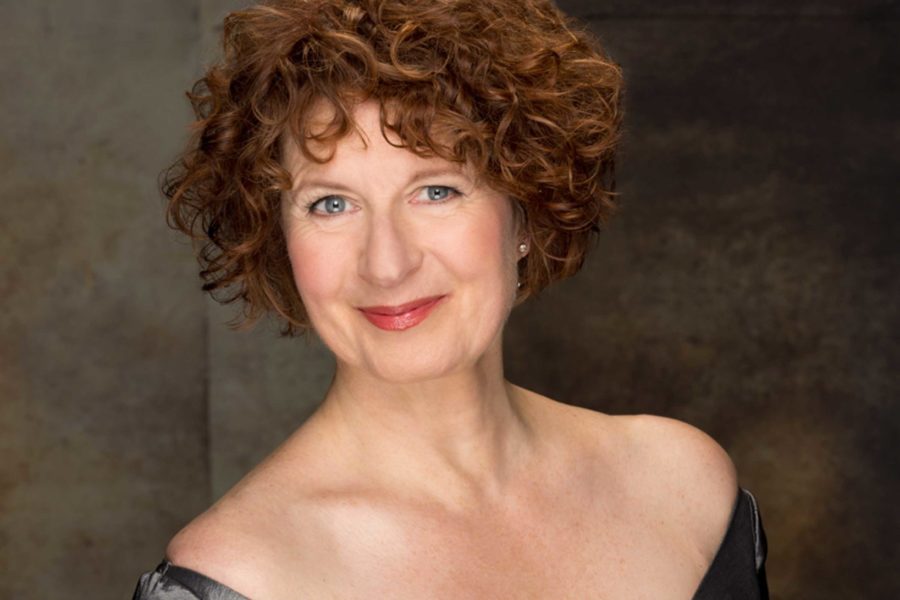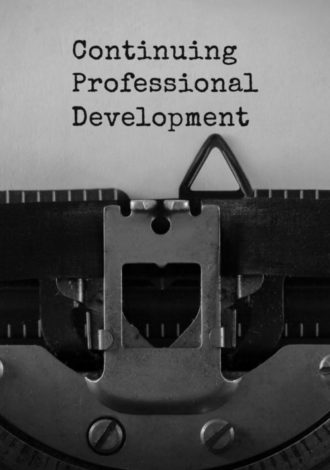
Photo courtesy of Lyric Stage
Bringing down the house: Award-winning actress Paula Plum is starring in The Roommate
Award-winning Boston actress, writer, and director Paula Plum has played everyone from Cleopatra to Isadora Duncan to Lady Macbeth. She’s won two Elliot Norton awards, two IRNE awards for best actress, and was awarded the Fox Actor Fellowship in 2009 to spend three years developing new work with Speakeasy Stage.
Currently, Plum is portraying a repressed middle-aged divorcée in Lyric Stage’s The Roommate. Playing through Nov. 18, the show follows Sharon, who lives a sheltered existence in Iowa, as she gets a roommate, Robin—a mysterious, worldly woman from New York City—and her life is turned upside down.
The show is packed with twists, powerful introspection, and extraordinary acting, not least on the part of Plum. Exhale sat down with the actress to talk about the role and her experience in the theater industry.

Photo courtesy of Lyric Stage
High times: Plum’s character Sharon (left) and her roommate, Robin, share a joint

Exhale: What drew you to this role and this story?
Paula Plum:What drew me is that it’s about a woman who’s very limited. In her little house in Iowa, she doesn’t have a job, she’s been married, and her son is estranged from her. And she’s introduced to the world through this relationship with another woman, who opens up possibilities to her that she could never have imagined.
Jen Silverman [the writer] has said that she doesn’t want to sanitize the play or sanitize women’s relationships. She created an intentionally ambiguous end to the play, which allows the audience to think that Sharon may go down the road to ruin or she may not.

Have you had any experiences that informed your portrayal of Sharon?
I’ve had roommates who have changed my life, my college roommate. This was in the ’70s, and we were introduced to meditation and to yoga. This was all cutting edge back then, and my roommate Eve was a real iconoclast. And she was Jewish, while I was raised Catholic. In a way, she was exotic to me the way Robin is exotic to Sharon.
The question I had with this play was where is the victory, where is the redemption? How does that last moment of the play inform audiences as they leave the theater? And my scene partner Adrianne said to me, “The redemption is that Sharon is finally in a relationship with herself.” She’s finally starting to see the possibilities of her own life, as she can manifest them.

Why do you think it’s important to tell the stories of older women?
I think women have been told all their lives to be a certain way. To be mothering, nurturing, compassionate, caregivers. Women are still fighting for recognition as multidimensional creatures with infinite capabilities.
We have to think, What are the possibilities that young women are looking forward to becoming? Michelle Obama gave all of us a picture of that. She’s a lawyer but she was also an incredible teacher; she had a garden in the White House, she was proactive. She’s a multidimensional, successful human being who is also a woman.

What’s a challenge you’ve experienced in your theater career and how have you dealt with it?
Ninety percent of roles in theater are written for men. And almost 150 percent of the people going out for any role are women. We can have a play with two women and nine men, and three men will show up for the audition and 100 women will show up for the female roles. Those are real statistics. It’s much harder for women in theater because women have a lower expectation of standard of living, and theater pays so poorly that it attracts fewer males.

What advice would you give to other women trying to make it in the industry?
You have to think of your career as an accumulation of effort as opposed to thinking about the failures you encounter along the way. For every 10 auditions you might get one job. Maybe. My friend likened it to nuclear fusion. It takes a certain number of atoms before you get an explosion. So every time you make some sort of effort, you’re just adding to that final result. Otherwise, you’d just shoot yourself in the head.
Keep going out and meeting people and leaving the house. Sharon says she doesn’t really leave the house. And then she finally does leave and goes on a date and, well, she kind of goes off the deep end because of all the repression. You have to encounter the world in order to find out who you are.



 4 min read
4 min read



